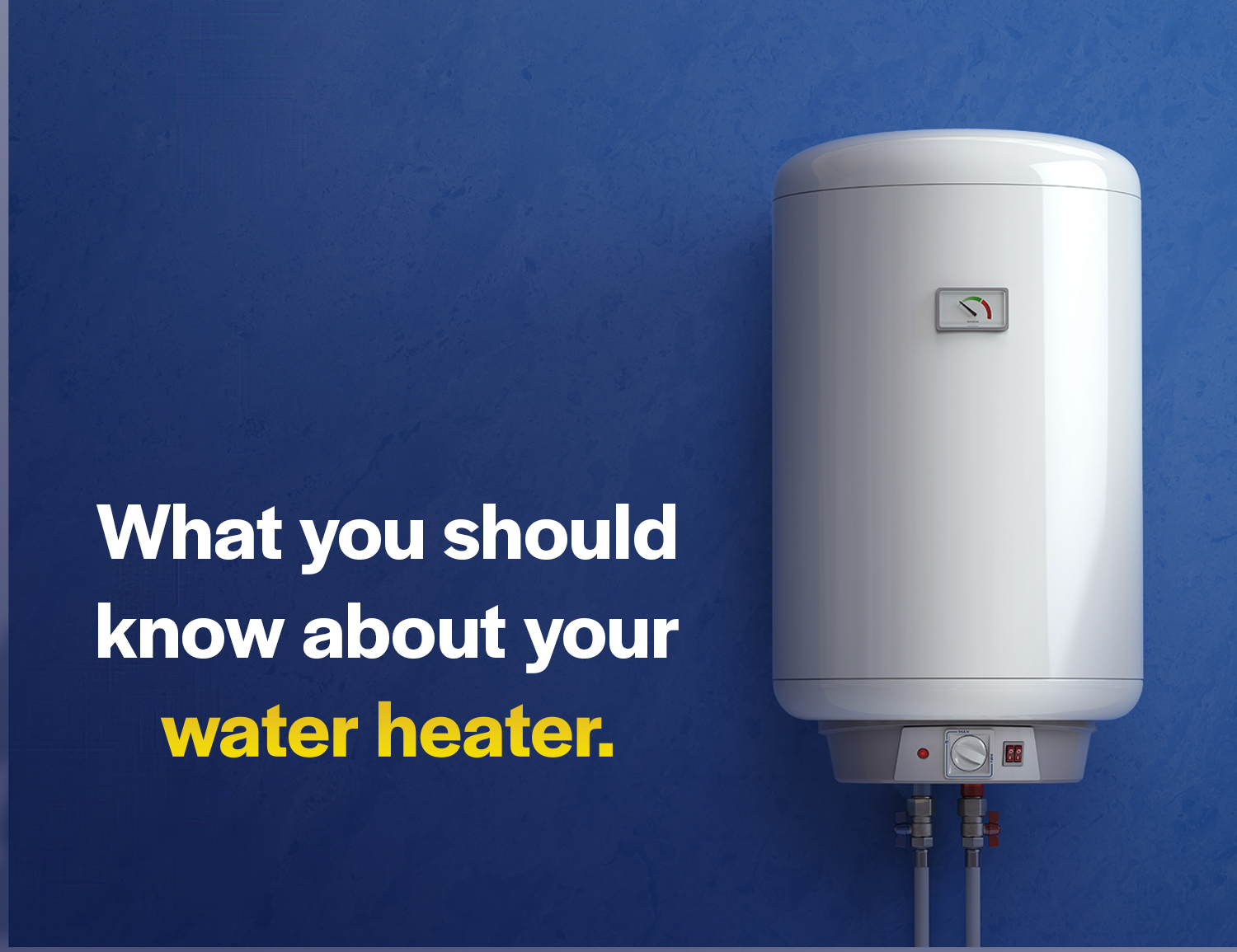
The water heater is responsible for supplying hot water for showers, baths, dishwashing, and laundry. Despite its importance, many homeowners take their water heaters for granted until a problem arises. In this article, we will look into the essential aspects of water heaters, helping you understand how they work, how to maintain them, and when it might be time for a replacement.
Types of Water Heaters
Before delving into the intricacies of water heaters, it’s essential to recognize the different types available on the market and identify which type of water heater you have. The most common types include:
Tank Water Heaters:
- These are the traditional and widely used water heaters.
- They store and heat a large amount of water in a tank, ensuring a steady supply of hot water.
- Tank water heaters can be powered by electricity, natural gas, or propane.
A tank water heater consists of a large insulated tank and a heating element (either a gas burner or an electric heating element). Cold water enters the tank through a dip tube and is heated by the heating element and the heated water then rises to the top of the tank and is drawn from the hot water outlet when needed. A thermostat regulates the water temperature inside the tank.
Tankless Water Heaters:
- Also known as on-demand water heaters, these units heat water directly without the need for a storage tank.
- They are more energy-efficient than tank heaters because they only heat water when it’s needed.
- Tankless water heaters are often powered by electricity or gas.
Tankless water heaters use a heat exchanger to rapidly heat the water as it flows through the unit. When a hot water tap is turned on, cold water travels through a pipe into the unit. Either a gas burner or an electric element heats the water on-demand and the hot water is delivered to the faucet or appliance, eliminating the need for a storage tank.
Water Heaters Maintenance
Proper maintenance is key to ensuring the longevity and efficiency of your water heater. Here are some essential tips to keep in mind:
Flushing the Tank. For tank water heaters, sediment can accumulate at the bottom of the tank over time, affecting efficiency. Periodically flushing the tank helps remove sediment and maintain optimal performance.
Checking the Pressure Relief Valve. All water heaters have a pressure relief valve that prevents excessive pressure buildup. Regularly testing this valve ensures it functions correctly and helps prevent potential safety hazards.
Inspecting for Leaks. Check for any signs of leaks or corrosion around your water heater. Addressing leaks promptly can prevent water damage and extend the life of the appliance.
Adjusting the Temperature. Set the water heater thermostat to a safe and energy-efficient temperature (around 120°F or 49°C). This helps prevent scalding and reduces energy consumption.
Annual Professional Inspection. Consider scheduling an annual inspection by a professional plumber. A qualified technician can identify and address potential issues before they become major problems.
Signs Your Water Heater Needs Attention
Recognizing the signs of a malfunctioning water heater is crucial to addressing issues before they escalate. Some common indicators that your water heater may need attention include:
Inadequate Hot Water. If you consistently run out of hot water more quickly than usual, it could indicate a problem with your water heater.
Strange Noises. Unusual sounds such as popping or rumbling may suggest sediment buildup in the tank.
Leaking Water. Any signs of water pooling around the base of the water heater require immediate attention to prevent further damage.
Rusty Water. If the hot water appears rusty or discolored, it may indicate corrosion inside the tank.
Age of the Water Heater. Most water heaters have a lifespan of 8 to 12 years. If yours is approaching or exceeding this range, it may be time to consider a replacement.
Choosing a New Water Heater
When the time comes to replace your water heater, it’s essential to make an informed decision based on your household’s needs and energy preferences. Decide whether you want a water heater powered by electricity, natural gas, propane, or a hybrid model. Choose a tank size that meets the hot water demands of your household. Larger families may require a higher-capacity tank. Look for energy-efficient models with a high Energy Factor (EF) to reduce utility costs and consider the warranty offered by the manufacturer. Longer warranties often indicate the manufacturer’s confidence in the product’s durability. Factor in the installation costs, especially if you are switching from a tank to a tankless water heater or vice versa.
Understanding your water heater and implementing proper maintenance practices are crucial for ensuring a reliable and efficient supply of hot water in your home. Regular inspections, flushing the tank, and addressing issues promptly can extend the lifespan of your water heater and prevent unexpected breakdowns. When it’s time for a replacement, carefully consider your household’s needs, energy preferences, and the various options available to make an informed decision. By staying proactive and informed, you can enjoy the benefits of a dependable water heater for years to come! For professional assistance, call your trained and experienced plumbers at VIP Sewer and Drain Services!


